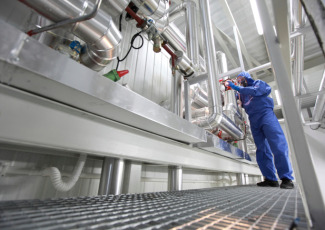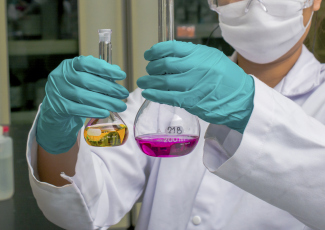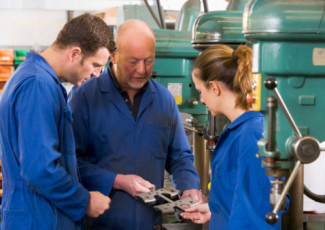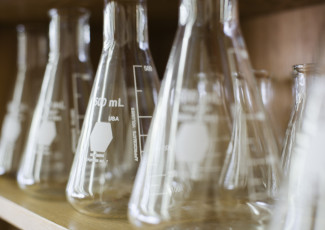Partnership Helps Businesses Create STEM Internships
By Sonya Stinson
November 20, 2014
Arizona community college, university and high schools are working together to create STEM internship programs for local employers that need trained workers.
When Southern Arizona manufacturers explained their dire need for workers with both classroom training and industry experience, a group of local higher education and high school administrators listened. Then they got to work helping industry partners create science, technology, engineering and mathematics (STEM) internship programs through which students could gain the skills and experience these jobs demand.
In October, Pima Community College (PCC), the University of Arizona and the Tucson-area high schools involved in the partnership announced their latest effort to facilitate these STEM internships: shrinking the guidelines for employer participation in the internship program to a single sheet of paper.
The one-sheet tells employers how to navigate the major steps to creating a successful internship program: setting goals, designing a plan, and recruiting and managing interns. It also includes a timeline of several actions that participating businesses need to complete, such as committing to providing internships, participating in PCC’s orientation program and hiring the interns.
The employer part of the equation
The employers involved in this partnership are part of Tucson’s Southern Arizona Manufacturing Partners, which is working with PCC, Tucson High Magnet School, Desert View High School and the Pima County One-Stop Career Center to improve workforce development. The employer selection process involves interviews with industry members and Pima County One-Stop employees, says Greg Wilson, PCC’s academic dean for business, occupational and professional programs.
More than 20 businesses — including B/E Aerospace; Industrial Tool, Die and Engineering; Hi-Tech Machining & Engineering; and FLSmidth Krebs — are participating in the internship program. Pima County One-Stop funding covers the first 160 hours of the paid internships, and employers pay for the next 160 hours.
How it works for students
Through the program’s dual enrollment system, students can earn college credit for machine shop classes they take in high school. That means they can earn certificates in just over a year, instead the two years it normally takes.
At PCC, one internship program places students in part-time summer jobs with local manufacturing companies while they earn a certificate in machine shop technology at the college. These students likely won’t lack for work in the state: Southern Arizona Manufacturing Partners projects that Arizona will need 1,700 new machinists to close the supply gap by 2020.
PCC also has a similar internship program with the local electrical utility, and the college is working on setting up another with the gas utility.
“It’s the model that we’d like to use for all of our occupational programs,” Wilson says.
Communication breeds success
Through monthly meetings and frequent telephone and email conversations, all of the internship partners stay in close contact. “The open communication allows us to stay focused on what matters to industry, which obviously helps our students in terms of employment,” Wilson says.
The dialogue has even sparked plans for some course design changes. PCC and the high schools are working to align their manufacturing curricula with National Institute for Metalworking Skills standards, and the college is drafting a new machine shop math course that relates directly to industry needs.
“It’s not just a bunch of theory,” Wilson says. “It’s what they can expect to see on the job.”
How does your college work with local industry to create real-world training experiences for students? Tell us in the Comments.














